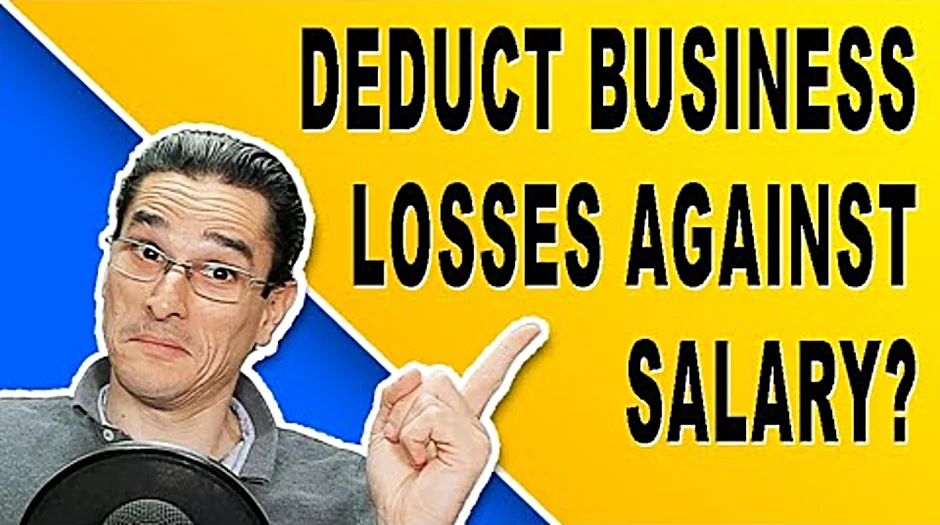Are llc distributions taxed as ordinary income loss [Detailed Response]
Table of Contents
- How are distributions taxed from an LLC?
- How are business distributions taxed?
- How do you disburse money from an LLC?
- How does a k1 affect my personal taxes?
- How does an LLC avoid paying taxes?
- How often can an LLC make distributions?
- What is the best tax classification for an LLC?
- Is owner's draw the same as a distribution?
- What are the rules regarding distribution of profits and losses?
- What is the disadvantage of an LLC?
- Are K-1 distributions considered income?
- How are losses distributed in an LLC?
- Why are distributions not taxed?
- Are distributions from an LLC considered earned income?
- What rate are LLC distributions taxed at?
- How are profits and losses distributed in an LLC?
- Are distributions taxed as ordinary income?
- How are LLC losses treated?
- Can LLC losses offset capital gains?
- Are LLC distributions taxed as capital gains?
Last updated : Sept 19, 2022
Written by : Robby Balent |
Current |
Write a comment |
How are distributions taxed from an LLC?
Each member reports tax distributions from the LLC on the member's IRS Form 1040 Schedule C as self-employment income. Even if the LLC does not actually pay a dividend to its member(s) in cash, but retains the funds for cash-flow reasons or reinvestment purposes, the income still appears on the member's income taxes.
How are losses distributed in an LLC?
An LLC is allowed to distribute losses differently among its members. For instance, a member who has a 1 percent interest may take 90 percent of the tax losses incurred in a year. In addition, an LLC may distribute money to its investors even if it has no profits or distributes less than its total profits.
Are distributions from an LLC considered earned income?
LLC (taxed as a C corporation) or a shareholder in a C corporation: The profits of the business aren't considered earned income, but rather are considered a return on investment and are taxed at special corporate income tax rates.
What rate are LLC distributions taxed at?
Your LLC pays California corporation taxes. If taxed like a C Corp, you pay a flat 8.84% tax on net income. If taxed like an S Corp, pay a 1.5% tax on net income.
How are profits and losses distributed in an LLC?
The business does not pay entity-level taxes. Instead, the company passes profits and losses through to you and the other members. The LLC allocates profits to members based on their ownership percentage or based on a special percentage allocation as agreed upon by the members.
Are distributions taxed as ordinary income?
Dividends can be classified either as ordinary or qualified. Whereas ordinary dividends are taxable as ordinary income, qualified dividends that meet certain requirements are taxed at lower capital gain rates.
How are LLC losses treated?
If your business is a partnership, LLC, or S corporation shareholder, your share of the business's losses will pass through the entity to your personal tax return. Your business loss is added to all your other deductions and then subtracted from all your income for the year.
Can LLC losses offset capital gains?
LLCs that choose to be taxed as a partnership will not recognize any profits or losses but pass them through to each partner based on the partner's ownership percentage. The capital gains and losses will offset each other.
Are LLC distributions taxed as capital gains?
Distributions to limited partners are usually taxed as capital gains. There are 2 different tax groups for capital gains: short and long term. If you've owned the LLC stock for more than a year you'll be taxed at the more preferable long term capital gains tax rates.
How are business distributions taxed?
Dividends come exclusively from your business's profits and count as taxable income for you and other owners. General corporations, unlike S-Corps and LLCs, pay corporate tax on their profits. Distributions that are paid out after that are considered “after-tax†and are taxable to the owners that receive them.
How do you disburse money from an LLC?
Distributions Upon Dissolution Creditors must be paid first. Then, the member's owed a prior distribution are paid. After, the LLC must return all excess funds to each member who made a contribution to the company. Finally, each member receives a fair share of excess in the form of profit distribution.
How does a k1 affect my personal taxes?
The purpose of Schedule K-1 is to report each partner's share of the partnership's earnings, losses, deductions, and credits. It serves a similar purpose for tax reporting as one of the various Forms 1099, which report dividend or interest from securities or income from the sale of securities.
How does an LLC avoid paying taxes?
A general Corporation making a Subchapter “S†Election or an LLC with or without a Subchapter S Election pays no federal tax on its taxable income and no employment taxes on its distributions to stockholders.
How often can an LLC make distributions?
An LLC's profits must be allocated among its members every year. As long as the operating agreement contains provisions governing how profits are to be allocated, the profit allocation rules as set out in the operating agreement will be followed, rather than the default state rules.
What is the best tax classification for an LLC?
The best tax classification for an LLC depends on whether you want your business profits to be taxed at your personal income tax rate, or at the corporate tax rate. If you'd prefer personal tax rates, you can classify it as a disregarded entity or as a partnership. Otherwise, you can classify it as a corporation.
Is owner's draw the same as a distribution?
A draw and a distribution are the same thing. IRS terminology on tax forms shows the latter “owners distribution†as the filing term. It is coined an owner's draw because it is a withdrawal from your ownership account, drawing down the balance.
What are the rules regarding distribution of profits and losses?
Profits or losses made by a firm should be divided among its partners per the provision of their partnership deed. However, if there is no written or oral agreement among the partners, the law prescribes that partners should share profits and losses equally.
What is the disadvantage of an LLC?
Disadvantages of creating an LLC States charge an initial formation fee. Many states also impose ongoing fees, such as annual report and/or franchise tax fees. Check with your Secretary of State's office. Transferable ownership. Ownership in an LLC is often harder to transfer than with a corporation.
Are K-1 distributions considered income?
Just like any other income or tax document you get during tax season, you need to report your schedule K-1 when you file your taxes -- for two reasons: It's taxable income. It's already been reported to the IRS by the entity that paid you, so the IRS will know if you omit it when you file taxes.
Why are distributions not taxed?
A non-taxable distribution is a payment to shareholders. It is similar to a dividend, but it represents a share of a company's capital rather than its earnings. Contrary to what the name might imply, it's not really non-taxable.

Check these related keywords for more interesting articles :
Can you change an llc name
LLC maladie de meniere
How long does LLC registration takealot
What is the best state to LLC in
How to pay ca LLC taxes
Requirement for starting an LLC
Nevada LLC costs in virginia
How to file LLC taxes as s corp
LLC taxed as s corp new york
How does a LLC worksheet
How much does it cost to create an llc in minnesota
How to get an llc in minnesota
How long does it take for an LLC to be approved in texas for business
Kibsons international LLC
Can a llc buy property in another town
Did you find this article relevant to what you were looking for?
Write a comment
Comment by Sheldon Marner
what's going on alex here and today i'm answering your tax questions from reddit and today's question has to do with the deduction of business losses and or startup costs from other income such as wages let's take a look all right this question comes from hey manu and goes as follows can you deduct business losses startup costs from regular salary this is in washington state a state with no income tax i work a 9 to 5 and have a w-2 but i want to start building social media following slash business i plan to invest heavily in growing my instagram youtube in 2022 with paid collabs promoted posts recording equipment so my influencer business would be running at a loss for the first year at a big loss no less question is can these losses offset my salary all right so there are a few considerations here to take into account first one has to do with whether this activity rises to the level of a trade or business because believe it or not for income tax purposes that is something to be achieved for the potential benefits that go along with having a trader business from an income tax perspective and there are essentially nine factors that the irs considers and neither of them are all-encompassing so you can have just a few factors working in your favor but the more of them that apply to your particular business the better it looks to treat that business as a trader business for tax purposes so let's take a look at what those factors are now there's an irs web page here that is called earning site income is it a hobby or a business if it's a business for income tax purposes bonafide trade or business and you're deducting ordinary necessary business expenses then you may very likely be able to offset the salary with the losses from the business but if your activity does not rise to the level of a trader business then it may be classified as a hobby for income tax purposes in which case the deductions are going to be limited to the income all right so in that case if it's a hobby you are not able to offset salary with any losses from that hobby so this list is very important to consider prior to taking any of these sorts of deductions it says here are nine things taxpayers must consider when determining if an activity is a hobby or a business let's take a look whether the activity is carried out in a business-like manner and the taxpayer maintains complete and accurate books and records so this is where accounting is important sometimes clients go i don't want to worry about the accounting but at the end of the day if you have a business it's traditional or expected i should say to have books and records available so that's accounting basically an income statement balance sheet that pretty much gets you there next whether the time and effort the taxpayer puts into the activity show they intend to make it profitable so that's an important point as well so if you like to knit and every once in a while you need a sock and a hat that may not rise to the level of a trade or business all right it needs to have some consistency there and to show that you're making an active effort to make it profitable and to grow it to get new clients to market it advertise it all that good stuff third whether they depend on income from the activity for their livelihood so that's also a good indication that it's a business because if you're a plumber and you happen to have a plumbing company and you're relying on that income to live it may very well be classified as a traded business it's hard to make the case that a plumber with a plumbing company is doing it as a hobby i guess you can make that argument but i think it's an uphill battle whether any losses are due to circumstances beyond the taxpayer's control or are the normal for the start-up phase of their type of business all right so that's another factor to keep in mind whether they change methods of operation to improve profitability so if a business starts out with having consistent losses is anything being done to mitigate those losses are they decreasing over time and let me be very clear businesses can have losses year over year and not be classified as a hobby but what you get into is that if a business has losses in at least three out of the last five years then there's what's known as a rebuttable presumption that that business is a hobby so the irs could say look in three out of the last five years you had losses so we're going to assume that this is a hobby but you can rebut that presumption by addressing these factors and saying look my activity meets a lot of these factors that are described here so it is a trader business let's remember chrysler has been losing money for years and nobody's going to classify them as a hobby okay so rebuttable presumption three of the last five years if you have losses now you're getting into that aspect or or that test of whether that activity rises the level of trade or business that's where these factors come in just to add a little context let's continue whether the taxpayer and their advisors have the knowledge needed to carry out the activity as a successful business all right so that's interesting maybe a little bit of subjectivity there but if you're just trying to start the next spacex and you've never taken the physics course that may very well work against you in deducting some of those losses all right just as an example next whether the taxpayer was successful in making a profit in similar activities in the past that's another factor that plays into it whether the activity makes a profit in some years and how much profit it makes all right so if you have kind of ups and downs generally that's fine as long as you can satisfy as many of these factors as possible again neither of these factors is determinative so if you satisfy some of them in one year some of them the next year you may be all good but just keep in mind that this is what's on the radar in terms of questioning whether an activity is a hobby or a business for income tax purposes and whether the taxpayers can expect to make a profit a future profit from the appreciation of the assets used in the activity all right so those are the factors here notice what's missing putting together a business entity is not on this list you're not going to fool anybody from an income tax perspective just by doing your hobby under an llc or doing it under a corporation you're not fooling anyone okay so unfortunately that's not a way to get around it and that's why you're not seeing it here it's not one of the factors okay and similarly the fact that you engage in a hobby consistently throughout the year still doesn't make it a trader business right so you may like fixing bicycles and if you fix bicycles for friends and your uncle and the neighbor and everybody that's in five mile radius of your house and you never charge them for it but then you decide to charge one person your activity may not rise the level of trade or business just because you're not really meeting all of these nine factors necessarily in that case you may but i feel like it might be an uphill battle so with that the first question you're g
Thanks for your comment Sheldon Marner, have a nice day.
- Robby Balent, Staff Member
Comment by Trinidad
girl and in this video IS thought
Thanks Trinidad your participation is very much appreciated
- Robby Balent
About the author

Robby Balent
I've studied collective bargaining at Florida Agricultural and Mechanical University in Tallahassee and I am an expert in molecular dynamics. I usually feel thankful. My previous job was greenhouse and nursery manager I held this position for 22 years, I love talking about mazes (indoor/outdoor) and icing cakes. Huge fan of Ellen Page I practice mountaineering and collect scouting memorabilia.
Try Not to laugh !
Joke resides here...
Tags
How are business distributions taxed
How do you disburse money from an LLC
How does a k1 affect my personal taxes
How does an LLC avoid paying taxes
How often can an LLC make distributions
What is the best tax classification for an LLC
Is owner s draw the same as a distribution
What are the rules regarding distribution of profits and losses
What is the disadvantage of an LLC
Are K-1 distributions considered income
How are losses distributed in an LLC
Why are distributions not taxed
Are distributions from an LLC considered earned income
What rate are LLC distributions taxed at
How are profits and losses distributed in an LLC
Are distributions taxed as ordinary income
How are LLC losses treated
Can LLC losses offset capital gains
Are LLC distributions taxed as capital gains
 : 745
: 745

